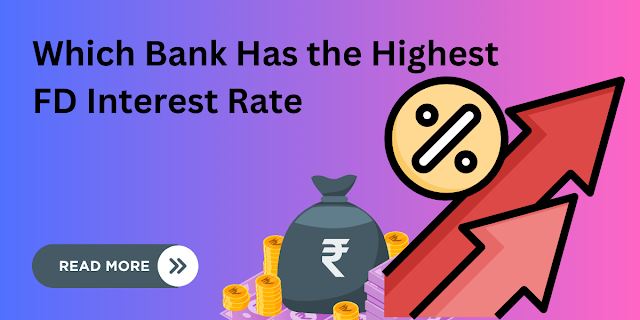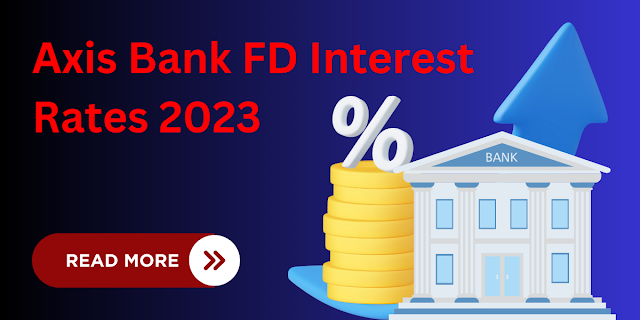Which Bank Has the Highest FD Interest Rate?
In today's competitive financial market, finding the right bank to maximize your savings through fixed deposits (FD) is crucial. If you're looking for a bank that offers the highest FD interest rates, you've come to the right place. This comprehensive guide will provide you with valuable insights and information to help you make an informed decision. So, let's dive in and discover which bank can offer you the best returns on your fixed deposit.
Understanding Fixed Deposits (FDs)
Before we delve into the details, let's first understand what fixed deposits are. Fixed deposits are a popular investment option offered by banks and financial institutions. They allow you to deposit a specific sum of money for a predetermined period at a fixed interest rate. At the end of the tenure, you receive the principal amount along with the interest accrued.Fixed deposits are considered a safe investment choice as they offer guaranteed returns and protection of your capital. However, the interest rates offered may vary from bank to bank. That's why it's essential to compare different banks and their interest rates before making a decision.
Factors Affecting FD Interest Rates
Various factors influence the interest rates offered by banks for fixed deposits. Some key factors include:1. Reserve Bank of India (RBI) Policy Rates
The Reserve Bank of India (RBI) sets the benchmark interest rates for all banks in the country. These policy rates, such as the repo rate and reverse repo rate, directly impact the interest rates offered by banks on their fixed deposits.
2. Market Conditions
Market conditions, including inflation rates, economic growth, and demand for credit, play a significant role in determining interest rates. Banks adjust their fixed deposit rates based on the prevailing market conditions.
3. Tenure of the Fixed Deposit
Generally, longer tenures attract higher interest rates on fixed deposits. Banks offer higher rates for extended periods to incentivize customers to keep their funds deposited for a more extended period.
4. Customer Relationship
Many banks offer preferential rates to their existing customers or account holders. Building a strong relationship with a bank by maintaining multiple accounts or availing of other banking services might lead to better interest rates on fixed deposits.
5. Competition among Banks
The intense competition among banks also influences interest rates. Banks often adjust their rates to attract more customers and gain a competitive edge in the market.
Banks with the Highest FD Interest Rates
Now, let's explore some of the banks in India that are known for offering attractive interest rates on fixed deposits.| Column1 | Column2 | Column3 |
| Bank | General Public | Senior Citizens |
| Suryoday Small Finance Bank | 9.10% p.a. | 9.60% p.a. |
| Unity Small Finance Bank | 9.00% p.a. | 9.50% p.a. |
| Bandhan Bank | 8.00% p.a. | 8.50% p.a. |
| DCB Bank | 8.00% p.a. | 8.50% p.a. |
| Punjab & Sind Bank | 7.35% p.a. | 7.85% p.a. |
| State Bank of India | 7.10% p.a. | 7.60% p.a. |
| HDFC Bank | 7.10% p.a. | 7.60% p.a. |
| ICICI Bank | 7.10% p.a. | 7.60% p.a. |
| Axis Bank | 7.05% p.a. | 7.55% p.a. |
| Bank of Baroda | 7.05% p.a. | 7.55% p.a. |



Comments
Post a Comment